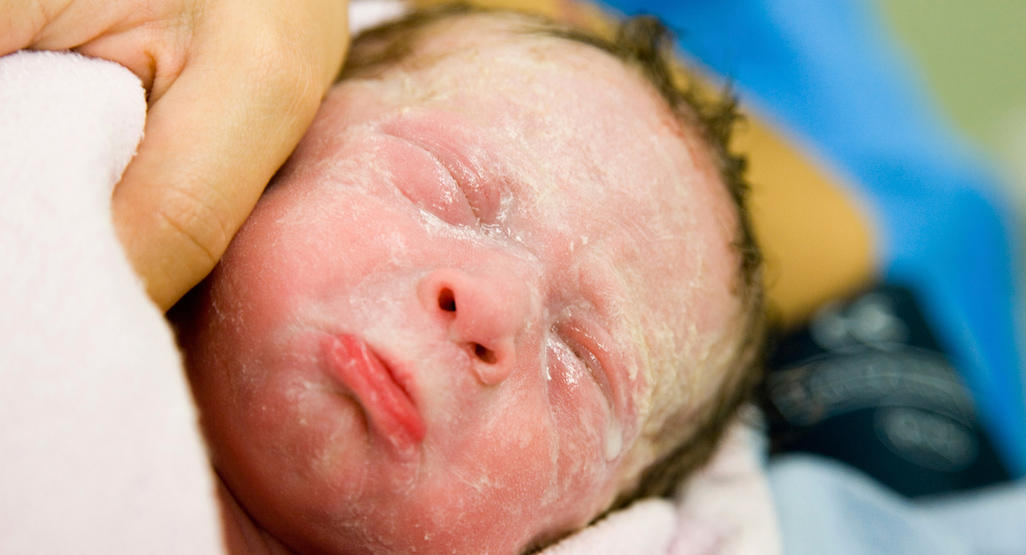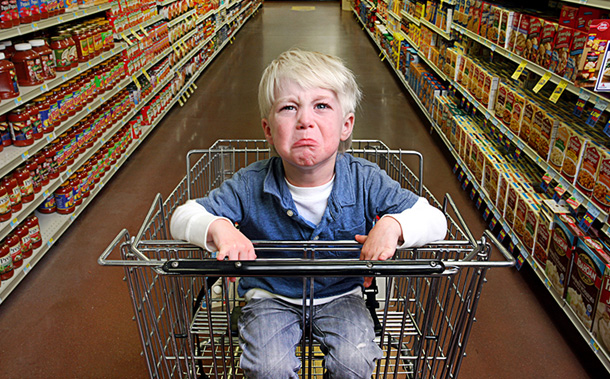Four “Bad” Stages of Childhood
You take your boy to the doctor—in the hopes that he’s seen this rash before and knows what to do about it. You commiserate with your women’s group about your daughter—thinking they will know what you’re going through, at least give you sympathy and perhaps even some things they’ve tried.
You talk to your pediatrician about growth, development and parenting during the “rough ages”—correctly knowing that they’ve seen thousands of parents who’ve already gone through exactly what you’re going through.
That’s what we do. That’s all we do. So we have seen thousands of parents go airborne as they hit the speed bumps of their kids lives in various stages… there are FOUR of them— you knew that, right?
There are FOUR difficult stages
I wrote about one of the more well-known ages (quite eloquently I believe) back in a previous article in the puberty series, Puberty: Psychological Stages – Part 2).
We’ll touch on it again in a minute, but I’d like to go through the other three less well known ages where parents and kids struggle; knowing that “to be forewarned is forearmed.”
Four “Difficult” Stages or Ages
Parenting Skills Required
Ok, you know as well as I do that your children are all unique; so, their problems are all unique too, right? Yes and No! After being “let in” to the lives of thousands of families and a lot more than that of children, I can tell you first hand that I began long ago seeing “reruns.” Even to the extent that I also notice subtlety in things that work and things that don’t.
Here’s the overview. Perhaps one or two in a hundred children climb smoothly, right down the middle, from infancy to adulthood with no dips, rolls or bumps. The vast majority of children do have four (that I can count) bad stages where neither they or anyone around them are too happy. The fourth lasts the longest and is like the “final exam” of all your parenting endeavors.
First Six Weeks (or eight)
I had an OB friend who taught me the secret code he used in the charts of his expecting mothers. During the first visit for a pregnancy he “predicted” the sex of the baby to the mother, then wrote the exact opposite in tiny letters at the top of the visit notes.
After the birth, he was “always” right. He was only challenged on 50% and would then merely need to claim they must have “misheard” him and point to his chart where he had noted his prediction!

I’ll do the same thing telling you how long the first “bad” stage will last. Whether it’s my observation of six weeks, or the occasional eight weeks, there none-the-less is a real change in the baby from what I’m calling “newborn to infancy.”
More often than you would ever dream, the first rude awaking for some new parents from “this isn’t all a dream I will wake up from” into “OMG THIS IS FOR REAL” comes near the exact moment they’ve brought the baby home from the hospital and the last visitor has left. Well, if not then, it’s the next morning after 24 hours of no sleep!
The newborns of almost every single other mammal on the planet are more capable, self-sustaining and less “needy” than a human newborn. To newborn Homo sapiens, every single sensory neuron is now turned on, everything is unexplainable, almost everything is uncomfortable compared to a “water bed” AND there is ONLY one option if they’re the least bit annoyed: cry!
In years to come you may block much of this out, but there is one new crisis after another: total responsibility for something so weak and vulnerable; the unexplainable crying; the umbilical cord, the circumcision and spitting up; the lack of sleep; the incessant neediness! And did I say the lack of sleep? Consider it lucky if you only need to get up every three hours day and night.
And all of this without any positive feedback or acknowledgement of your efforts.
Eventually exhaustion becomes the “new normal” for you. You may question your goal of parenthood and even begin considering asking your own parents for advice!
In this state it’s difficult to notice the small changes in awareness and almost imperceptible lengthening of sleep time; but, somewhere between 6 and 8 weeks the baby takes pity on its parents and begins sleeping almost long enough for you to feel rested. And, they begin looking at you with a semblance of recognition instead of a look of surprise and bewilderment.
It seems they know you. You can tell they’re smiling and not just having gas… and that makes all the difference! They are no longer what I call a newborn and have become and infant—where you have “reached final cruising altitude and the captain has turned off the seat belt sign”… for now.
Terrible Twos

The very first use in print of the phrase “terrible two’s” occurred in a language lexicon in 1950—beyond that Google doesn’t have a clue and I’m guessing the culprit isn’t making much of an effort to admit it! First because it’s terribly misleading and second because it can be a crutch leading to bad parenting.
We all get it. “The terrible two’s”—it’s a catchy phrase having all the markings of an advertisement gimmick; but, to those of us who are actually noticing and counting, the second “bad” age begins between fifteen and eighteen months and lasts for six months to a year or so.
Being inculcated with the myth, parents may be confused and afraid when the baby seems to be “growing the proverbial horns.” Even when reassured that it is common at both the 15 and 18 month “well baby” visits it just seems to go on and on and on… you get the picture.
Much of the motor skills have been mastered, they play on their own and can entertain themselves. They’ve memorized a few words and seem to understand what they mean. They smile and cry and you thought they understood you were their loving parent who suffered through 9 months of agony to bring them here and they were grateful.
The transition between dependent baby and independent toddler is absolutely no piece of cake and they are holding you accountable for every bit of it!
Looking at it dispassionately and logically: they’ve got words but not enough and almost no intellectual capacity to use them; they’ve got skills but absolutely not what they want; they’ve got brains but no understanding, command or control; they’ve got emotion, but so much it leaks out both ends simultaneously and every orifice in-between; they’ve got family, but: WHO ARE THESE ANNYOING PEOPLE CONTINUALLY IN MY WAY AND MAKING MY LIFE MISERABLE!

Skills and words aren’t enough when it’s concepts that they need like: “others versus me,” “now versus later” – are you getting the picture? Their entire world is binary: “ME” and “NOT-ME-things put on earth exclusively to serve me”; I like, I don’t like; I want, I don’t want. And, their entire mindset is: “WHO ARE YOU TO BE TELLIN’ ME WHAT TO DO?”
Their expressions and actions aren’t working on RAW emotion anymore like in infancy—it is carefully modulated and designed to obtain the biggest “bang for the buck.” By that I mean, they quickly learn what works and what doesn’t (even though they rarely understand it) and just like Pavlov’s Dogs repeat behaviors which gives them success.
THIS is the age of: “NO,” screaming, biting, kicking and temper tantrums par excellence. All these are the things on the outside you see and have to deal with; on the inside, the brain isn’t hooked up fully yet (but is attempting to).
You cannot reason with a two year old! So why do we see people keep trying? Yes, a “twoer” in a tantrum does need to hear a calm explanation with words; but you should never actually expect the kid to understand and comply! Why bother with explanation? Cause that’s your job and how they eventually learn. Why not to expect them to understand? Because their brain isn’t working yet and they can’t.
The Bottom Line Is This: This is an expected and functional neurodevelopmental stage of the brain and its functioning. It’s the KIDS job to get his brain sorted out—along with all the emotions, behaviors and abilities that go along with it.

It’s YOUR job to: A – be the parent by setting limits and rules; B – being truly sorry and embarrassed to those around you for your child’s behavior ; C – setting limits and enforcing them ; D – calmly teaching and explaining at age-level ; E – keep them safe through the tirades; and F – Endure to the end and G – Learn from the experience .
The good thing is that they do finally get their brain sorted out and the phase does end; the bad thing is that although you can do nothing to stop the phase you can prolong it and can set behaviors in motion which often become life-long detriments to their happiness and success.
A tantrum may be the only recourse available to them to use now; BUT, all the calm words in the world you teach them NEVER will teach behavior as strongly and permanently as when they actually see there is success in getting their own way!
You want tantrums to become a permanent part of their “vocabulary?” Give in to them. And remember, not responding in kind to them does NOT mean ignoring them. Most of the time careful attention will teach you the child’s “tell” and give away when a tantrum is coming; and two year olds are exquisitely distractible so take advantage of it—oooh, look at the pretty butterflies!
This is the second shortest of the “bad” times and you’ll get your old kid back again, emerging on the other side more capable, more wise and at least just as pleasant as before all this began
The Frustrating Four’s

The third “bad” age is the least well known and written about; so, often catches parents by surprise when they have been lulled into a false sense of bliss by an otherwise delightful child.
Between the child’s developing personality, circumstances and parenting styles it’s often difficult to set down times for difficult ages, which in reality can occur at any age; but, a significant proportion of children really have a tough time with their neuro-psychological development around four years of age: the Frustrating Fours.
Oppositional is the most universally descriptive word for a four year old. No other reason for defiance is needed than its you who want them to do something and all the behaviors they learned in the terrible twos (and got away with) resurrect into full bloom.
And, only being two years older, there still is very little real reasoning capability available to them. Every single decision, no matter how inconsequential, is contested—every single time. At almost no other time in their life will saying something like: “don’t you dare put your pajamas on” or “don’t you dare eat that spinach” actually cause them to run to do exactly what you want!
The sheer number of times you get to actually see and compare during the day leaves nearly every parent with a preference for a tantrum over a whiner absolutely any day of the week! And a four-year-old has much more “staying power” than a two year old.
What’s actually happening inside their head is anyone’s guess which makes it even more difficult to deal with their behavior; but, believe me, following the adage to “ignore it and it’ll go away” can solidify unproductive behaviors so firmly they’ll be near impossible to break.
In good times they seem to be so intelligent and understanding and they’ve grown so substantially that it’s easy to assume they can understand your explanations and arguments… BUT THEY DON’T. Mark Twain’s quote to “never try to teach a pig to sing—it wastes your time and just annoys the pig” is operative here.

Don’t get me wrong. Just like the two year old, four year olds DO need to hear the rationale and see your calm attempts at rationality. BUT, this is the age where “because I’m the mamma,” “because I said so,” “because I’m bigger than you,” “just fasten your seatbelt and shut up” are uttered at least a hundred times a day; because; they are the only thing that works and therefore the most rational thing to do.
Smart parents decide quickly to not get entangled in their wrangling and to merely cut off the inevitable arguments before they occur.
And smart parents never fall prey to the no-nothings on the internet who try to blame your four-year-old’s use of the word “no” on the fact that you’ve said it in their presence—possibly to limit the little darling’s “free will” to eat the goldfish. Those people either never have had a four-year-old… or want to sell you something, perhaps a book on “things your doctor doesn’t want you to know?”
When this stage finally ends (and it will) it will be replaced by a long streak of (perhaps) the most enjoyable experience you’ll have, beginning with the “Fascinating Five’s.”
Adolescence

The fourth and final so-called “bad” age we’ll talk about is adolescence which should come as no surprise for it does garner quite a lot of “bad press.” And, I’ve written about it before—quite extensively in fact back in the series about puberty; so I’ll be making this short and provide you links.
I’ve described three rough ages which, if nothing else, should have taught you that prior preparation could possibly blunt the trauma of what’s to come and make life easier for everyone.
It’s just that there is nothing that really prepares a parent’s psyche for that first eye-rolling event when the fruit of your loins gives you a look of contempt and you realize “this kid thinks I’m an embarrassment.”
“Truly, this is the time where most parents are forced to re-evaluate many of their previous decisions—as the parenting skills, in which they’ve long feared they’ve been remiss, seem to be daily publicized to the world merely by their teen walking around in public.” (Puberty: Psychological Stages – Part 2)
The “good times” last into 11 or 12 or perhaps a little into 13 years old when something convinces them that they’ve now got ignorant parents (and possibly always have), with backwards core beliefs which are not only wrong but designed explicitly against their happiness. They are now convinced that you don’t now, never have and never will understand them like their peers do.
The duration of this delightful kettle of fish is the most variable of all the “bad” ages and depends on what kind of problem-solving skills you’ve been able to teach them, their individual temperament, your own temperament and communication skills AND an inordinate amount of unknown pressures and advice they receive from all sides and venues—most of which you will probably never find out about.
It’s clearly an age to struggle through, where reason seems to have taken a sabbatical, just like you went through when they were four; except now they’re stronger, bigger and often have car keys and money of their own. Therefore stakes are much, much higher.
We know that brain maturation and thinking skills are still going through puberty into the early 20’s and some kids get hung up in this phase longer than others. Sometimes it ends with only a blister or two and hasn’t involved either an ER or a police car. Others aren’t so fortunate.
But, one day the looks of “disdain” will morph into perhaps “pity” and then “concern” over the fact that they finally recognize you—warts, flaws and all—as someone who has been there from the beginning, a place they’ve tied up to in a storm or two; and, hopefully, a source of unconditional love.
You probably aren’t as hopeless as they thought; and, with a little work, might be salvageable after all.

